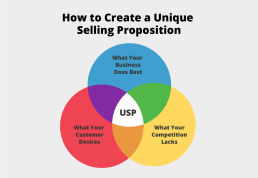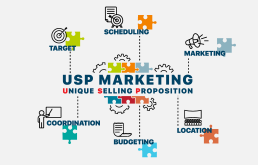What is the (USP) Unique Selling Proposition for your business? What is the (USP) Unique Selling Proposition for your business? What is the (USP) Unique Selling Proposition for your business? What is the (USP) Unique Selling Proposition for your business? What is the (USP) Unique Selling Proposition for your business?
text
Unique Selling Proposition (USP) Introduction:
In the world of marketing, businesses are always looking for ways to stand out from the competition. They want to differentiate themselves in the marketplace and make sure their products or services are seen as unique and valuable. One way to achieve this is through the development of a Unique Selling Proposition (USP).
A USP is a statement that describes what sets a business or product apart from the competition. It highlights the benefits that customers can expect to receive from using the product or service and why it is better than anything else on the market. Developing a USP requires a deep understanding of the target audience, their needs, and the competitive landscape.
In this article, we will explore the concept of the USP in detail. We will discuss what it is, why it is important, and how businesses can develop an effective USP. We will also provide real-world examples of successful USPs and offer tips on how to communicate your USP to your target audience.
What is a Unique Selling Proposition (USP)?
A Unique Selling Proposition (USP) is a statement that explains what sets a product, service, or business apart from the competition. It is a key element of a company’s marketing strategy and is used to differentiate the company and its offerings from others in the marketplace.
A USP should be concise, memorable, and focused on the benefits that customers can expect to receive from using the product or service. It should also be unique and difficult for competitors to imitate. The USP should be grounded in the needs and desires of the target audience, as well as the company’s strengths and capabilities.
Why is a Unique Selling Proposition (USP) important?
In today’s crowded marketplace, customers have many options to choose from. They are bombarded with marketing messages from all directions, and it can be difficult for a business to stand out. A USP is important because it gives customers a clear and compelling reason to choose one product or service over another.
A USP helps to differentiate a business from its competitors and can help to create a strong and loyal customer base. It can also help to increase brand awareness and recognition, as well as drive sales and revenue.
Developing an Effective Unique Selling Proposition (USP)
Developing an effective USP requires a deep understanding of the target audience, their needs, and the competitive landscape. A business must identify what sets it apart from the competition and how it can use that differentiation to meet the needs of its target audience.
The first step in developing a USP is to conduct market research to identify the needs and desires of the target audience. This research should include surveys, focus groups, and other methods of gathering feedback from customers and potential customers.
Once the needs of the target audience have been identified, the next step is to identify the competitive landscape. This includes identifying the strengths and weaknesses of the competition, as well as any opportunities or threats that may exist in the marketplace.
With this information in hand, a business can begin to develop its USP. The USP should be based on the needs and desires of the target audience and should be focused on the benefits that the product or service provides. It should also be unique and difficult for competitors to imitate.
Communicating Your Unique Selling Proposition (USP)
Once a business has developed its USP, it is important to communicate it effectively to the target audience. This can be done through a variety of marketing channels, including advertising, public relations, and social media.
The USP should be communicated clearly and consistently across all marketing channels. It should be prominently featured in advertising campaigns, on the company’s website, and in all marketing materials.
Conclusion
In conclusion, a Unique Selling Proposition (USP) is a key element of a company’s marketing strategy. It helps to differentiate a business from its competitors and plays a crucial role in attracting and retaining customers. By clearly defining and effectively communicating its USP, a company can establish a strong brand identity and gain a competitive edge in the market.
One of the primary benefits of having a strong USP is differentiation. In a crowded marketplace where customers are bombarded with numerous options, a compelling USP helps a business stand out and capture the attention of its target audience. By highlighting what sets it apart from the competition, a company can create a unique position in the minds of consumers and establish itself as the go-to solution for their needs.
Moreover, a well-crafted USP contributes to increased brand recognition. When a business consistently communicates its unique value proposition, it creates a memorable impression on customers. As they encounter the USP across various marketing touchpoints, such as advertisements, websites, or social media, they develop a familiarity with the brand and its offerings. This familiarity builds trust and credibility, making customers more likely to choose the brand over competitors.
Customer loyalty is another significant advantage of a strong USP. When a company consistently delivers on its unique promise and provides a superior experience, it fosters loyalty among its customer base. Satisfied customers become brand advocates, spreading positive word-of-mouth and influencing others to choose the brand. This loyalty not only leads to repeat business but also helps in acquiring new customers through referrals.
Furthermore, a well-defined USP enhances a company’s overall marketing efforts. By focusing on a specific unique benefit, businesses can align their marketing messages, campaigns, and branding strategies to effectively communicate their value to the target audience. A clear and consistent USP helps streamline marketing efforts and ensures that every touchpoint resonates with the intended message, resulting in a cohesive and impactful brand presence.
It is important to note that a USP is not static; it should evolve and adapt to changing market dynamics and customer preferences. Regularly evaluating the competitive landscape, staying updated on industry trends, and actively seeking customer feedback can help businesses refine their USP to remain relevant and compelling.
In conclusion, a well-defined and effectively communicated Unique Selling Proposition (USP) is vital for businesses to differentiate themselves, gain recognition, foster customer loyalty, and enhance overall marketing efforts. It is an essential element of a comprehensive marketing strategy that helps businesses carve out a distinct identity and create a strong competitive advantage. By understanding their target audience, researching competitors, and consistently delivering on their unique promises, companies can leverage their USP to thrive in today’s competitive marketplace and achieve long-term success.







